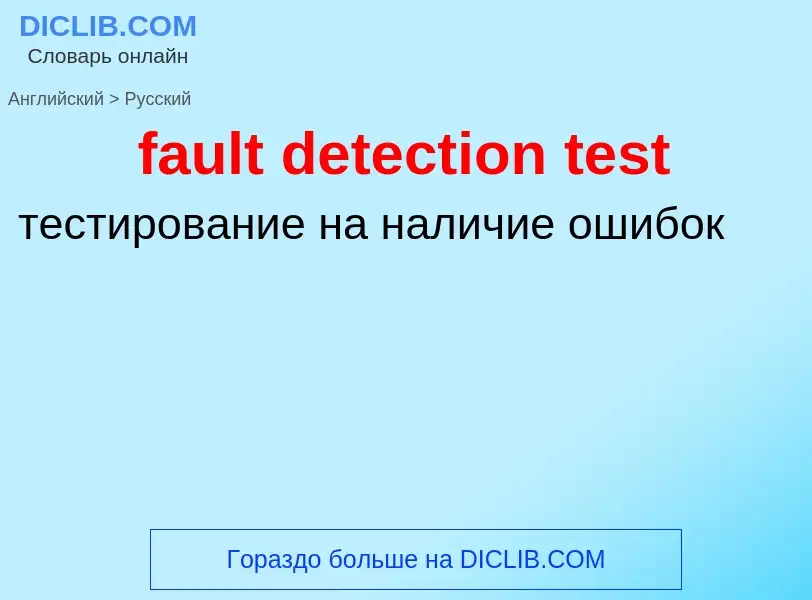Перевод и анализ слов искусственным интеллектом ChatGPT
На этой странице Вы можете получить подробный анализ слова или словосочетания, произведенный с помощью лучшей на сегодняшний день технологии искусственного интеллекта:
- как употребляется слово
- частота употребления
- используется оно чаще в устной или письменной речи
- варианты перевода слова
- примеры употребления (несколько фраз с переводом)
- этимология
fault detection test - перевод на русский
общая лексика
сообщение с землей
нефтегазовая промышленность
неустойчивая неисправность, перемежающаяся неисправность
общая лексика
замыкание на корпус
общая лексика
ток повреждения
нефтегазовая промышленность
внутренняя неисправность
общая лексика
возникающее повреждение
общая лексика
страничная ошибка, отсутствие страницы
это на самом деле не ошибка, а ситуация в системе управления виртуальной памятью, возникающая при обращении к странице памяти, отсутствующей в ОЗУ. Отсутствие страницы обнаруживается на аппаратном уровне, в результате выдаётся аппаратное прерывание (page fault interrupt), по которому производится её подкачка с диска
Смотрите также
[di'tekʃ(ə)nlimit]
специальный термин
предел чувствительности
медицина
порог обнаружения
Определение
Википедия
Statistical bias is a systematic tendency which causes differences between results and facts. The bias exists in numbers of the process of data analysis, including the source of the data, the estimator chosen, and the ways the data was analyzed. Bias may have a serious impact on results, for example, to investigate people's buying habits. If the sample size is not large enough, the results may not be representative of the buying habits of all the people. That is, there may be discrepancies between the survey results and reality. Therefore, understanding the source of statistical bias can help to assess whether the observed results are close to actuality.
Bias can be differentiated from other mistakes such as accuracy (instrument failure/inadequacy), lack of data, or mistakes in transcription (typos). Bias implies that the data selection may have been skewed by the collection criteria.
Bias does not preclude the existence of any other mistakes. One may have a poorly designed sample, an inaccurate measurement device, and typos in recording data simultaneously.
Also it is useful to recognize that the term “error” specifically refers to the outcome rather than the process (errors of rejection or acceptance of the hypothesis being tested). Use of flaw or mistake to differentiate procedural errors from these specifically defined outcome-based terms is recommended.

